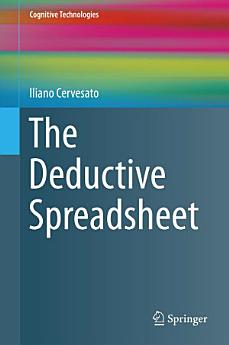The Deductive Spreadsheet
ກ່ຽວກັບປຶ້ມ e-book ນີ້
The first half of the book focuses on the deductive engine that underlies this application, the foundations that users do not see. After giving a mathematical model of traditional spreadsheet applications, we extend them with operators to perform a number of relational tasks, similar to the user view of a database but in a spreadsheet context. Expressing this extension in a logic programming framework is a natural step towards giving it powerful deductive capabilities. The second half of the book deals with the user interface, the part of the application with which the user actually interacts. We review the elements of the graphical user interface of traditional spreadsheet applications and describe practical methodologies for designing user interfaces borrowed from the field of cognitive psychology. We then propose a design that conservatively integrates mechanisms for a user to take advantage of the new deductive capabilities. This is followed by the results of some preliminary usability experiments.
The book will appeal to researchers and practitioners in the various areas underlying this work. Researchers will not only find interesting new developments in their domains, but will also learn how to achieve a multidisciplinary focus. Practitioners will find fully developed solutions to numerous problems that are not easily solvable using traditional spreadsheet applications.ກ່ຽວກັບຜູ້ຂຽນ
Iliano Cervesato is an Associate Professor of Computer Science at the Qatar campus of Carnegie Mellon University, where he teaches principles of programming languages, logic and computer security. He has held appointments at Carnegie Mellon University in Pittsburgh, where he performed his doctoral work, Stanford University, Princeton University, and Tulane University. He also worked for ITT Industries at the Naval Research Laboratory. Before moving to Qatar, he was the founder and chief research scientist of Deductive Solutions in Annandale, Virginia. His research interests encompass computational logic, programming languages, computer security, and user productivity applications.
He holds a B.Sc. in computer science from the University of Udine in Italy; an M.Sc. in computer science from the University of Houston in the US; and a Ph.D. in computer science from the University of Torino in Italy.
Dr. Cervesato has over 15 years of experience in computational logic and in various aspects of the design, analysis, and implementation of programming languages. He also has over a decade of research and development experience in computer security, notably cryptographic protocol analysis and the foundations of computer security. His expertise and contributions are internationally recognized. He has published over 100 articles on the above topics. He has been the program chair or general chair of several international scientific conferences.




